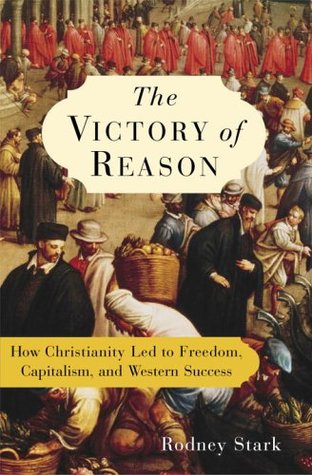More on this book
Kindle Notes & Highlights
by
Rodney Stark
Read between
March 26 - May 14, 2019
The Christian image of God is that of a rational being who believes in human progress, more fully revealing himself as humans gain the capacity to better understand. Moreover, because God is a rational being and the universe is his personal creation, it necessarily has a rational, lawful, stable structure, awaiting increased human comprehension . This was the key to many intellectual undertakings, among them the rise of science.
The so-called Scientific Revolution of the sixteenth century has been misinterpreted by those wishing to assert an inherent conflict between religion and science. Some wonderful things were achieved in this era, but they were not produced by an eruption of secular thinking. Rather, these achievements were the culmination of many centuries of systematic progress by medieval Scholastics, sustained by that uniquely Christian twelfth-century invention, the university. Not only were science and religion compatible, they were inseparable—the rise of science was achieved by deeply religious Christian
...more
The rise of science was not an extension of classical learning. It was the natural outgrowth of Christian doctrine: nature exists because it was created by God. In order to love and honor God, it is necessary to fully appreciate the wonders of his handiwork. Because God is perfect, his handiwork functions in accord with immutable principles . By the full use of our God-given powers of reason and observation, it ought to be possible to discover these principles.
Perhaps nothing is of greater significance to the Christian emphasis on individualism than the doctrine of free will. If, as Shakespeare wrote, the fault is “in ourselves,” it is because we believe we have the opportunity to choose, and the responsibility to choose well.
Some historians deny that there ever was an end to medieval slavery—that nothing happened other than a linguistic shift in which the word “slave” was replaced by the word “serf.”77 Here it is not history but historians who are playing word games. Serfs were not chattels; they had rights and a substantial degree of discretion. They married whom they wished, and their families were not subject to sale or dispersal. They paid rent and thus controlled their own time and the pace of their work. 78 If, as in some places, serfs owed their lords a number of days of labor each year, the obligation was
...more


